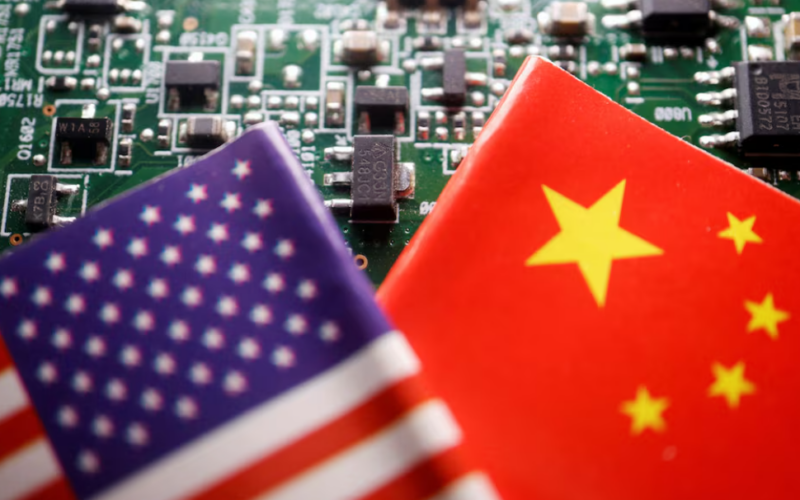The United States and the European Union have reaffirmed their commitment to collaborating on semiconductor sector stability, particularly concerning mainstream “legacy” chips originating from China. The decision comes as both entities concluded a two-day session of their Trade and Technology Council, resulting in a comprehensive 12-page joint statement outlining their shared objectives.
According to the joint statement released after the meeting, the US and EU have pledged to extend their cooperation for three more years, with a focus on addressing disruptions in the semiconductor supply chain. A key aspect of this collaboration involves exchanging market intelligence related to what they term as “non-market” policies and practices, particularly prevalent in China. Additionally, both parties have agreed to consult on potential actions to mitigate distortions within the global semiconductor supply chain.
European Commission Vice President Margrethe Vestager, responsible for overseeing EU technology policy, emphasized that the EU and US are advancing measures related to legacy semiconductors. Meanwhile, US Commerce Secretary Gina Raimondo highlighted China’s dominant position in producing approximately 60% of legacy chips used in various consumer products such as cars, household appliances, and medical devices. Raimondo expressed concerns regarding the significant subsidization of China’s semiconductor industry by its government, which could potentially lead to market distortions.
Raimondo disclosed that the US Commerce Department has initiated a survey to assess market distortions, with similar efforts expected to be undertaken by the EU in the near future. Both parties intend to share the findings of their respective surveys to foster greater transparency and collaboration.
In addition to addressing issues related to legacy chips, the US and EU have also committed to collaborating on research to explore alternatives to per- and polyfluoroalkyl substances (PFAS) commonly used in chip manufacturing. PFAS, known as “forever chemicals,” pose environmental and health risks due to their persistence and potential adverse effects on human health.
The joint efforts between the US and EU underscore the importance of international collaboration in ensuring the stability and resilience of the semiconductor supply chain, while also addressing broader environmental and health concerns associated with chip manufacturing processes.








